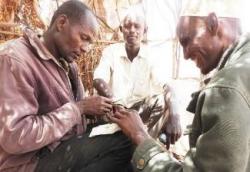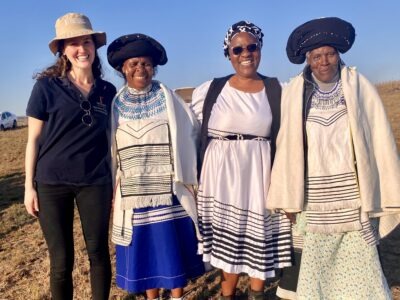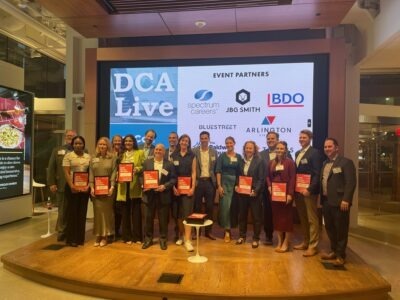
The Feed the Future Resilience and Economic Growth in the Arid Lands—Accelerated Growth (REGAL-AG) project has been busy of late opening livestock markets in Kenya’s arid lands and issuing business development grants (BDG) to private-sector agribusinesses.
Project Issues In-Kind Business Development Grants
As of May of this year, REGAL-AG has issued 25 business development grants, with 12 more awaiting approval. The project awards in-kind capital investment grants in the form of construction materials and/or the procurement of equipment. A variety of small businesses benefit from these grants, including those that produce animal feeds, process milk, retail meat, produce fish and chicken, and offer animal health services.
Merti Market Offers Livestock Trader Greater Security and Profitability
In addition to the BDG grants, REGAL-AG’s livestock markets alleviate market access constraints and boost economic growth. They promote increased sale volume, improved transaction efficiency, and enhanced security. One of the many individuals who benefit from the market is Bernard Mutambu, a livestock trader from Tharaka Nithi. He’s traded livestock for many years, buying between 20-30 calves a week.
“Before the market,” he says, “livestock traders like me walked long distances to locate manyattas (rural, often mobile settlements) to buy animals, since pastoralists move from one place to another.” He continues, “It was a time-consuming and difficult task. Not to mention the risk of walking around with money, and being exposed to attacks by bandits along the way.”
The new market provides traders a central location from which to operate. The twice-weekly market includes a gated perimeter fence, sale yard, animal pens, toilets, and a resting shade. Bernard buys calves that he sells to farmers and producers. “I prefer trading at Merti livestock market because the animal breed from this area is good and sells fast,” he explains.
On a good market day, Bernard buys up to 33 calves, which he transports by truck to Katunga. Prior to the market, Bernard used to spend between three to seven days moving from one manyatta to another to buy calves. “It now takes me just one day to travel from my home to the market, buy the calves, and transport them back to my home by evening,” Bernard concludes. “I am very happy.”





